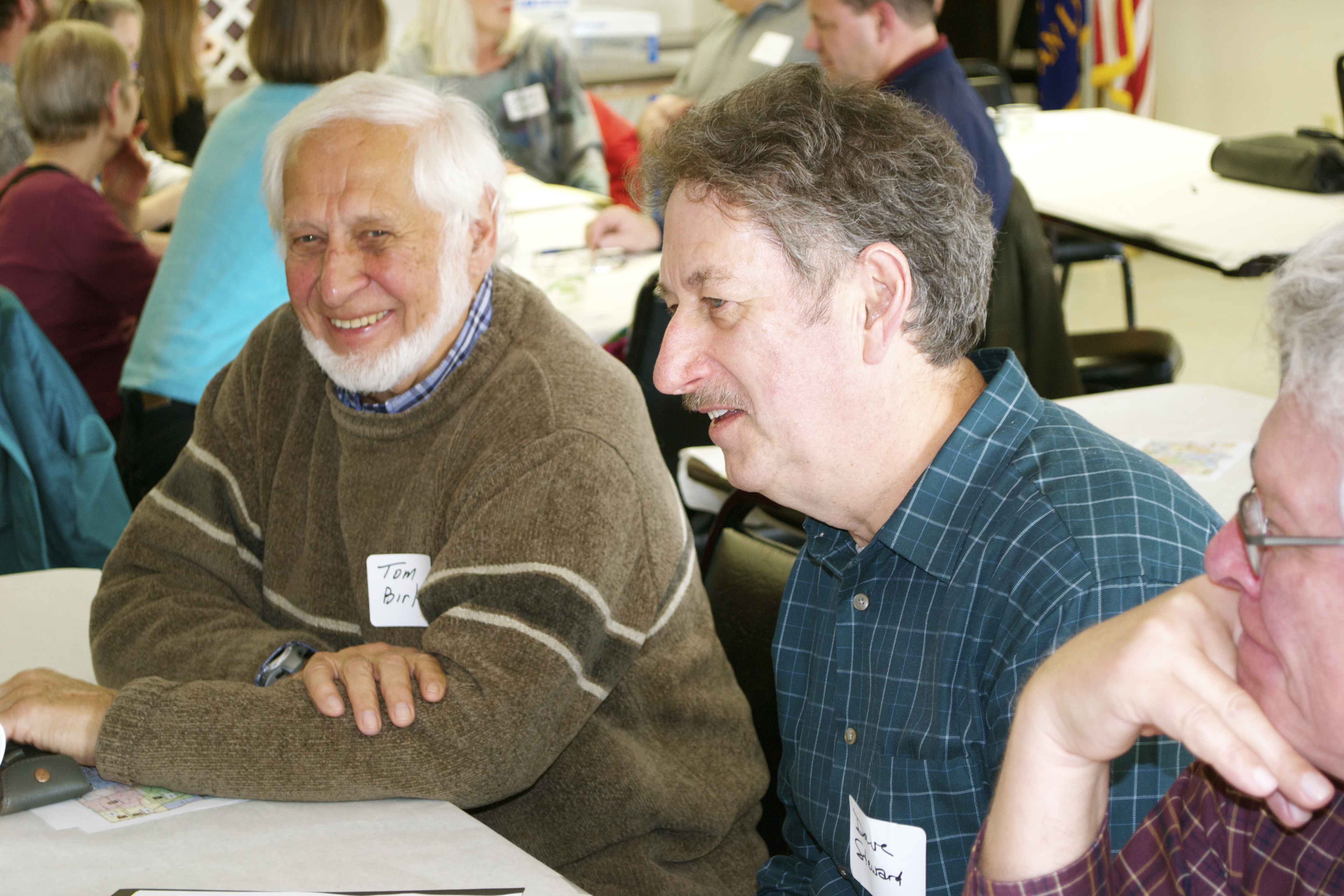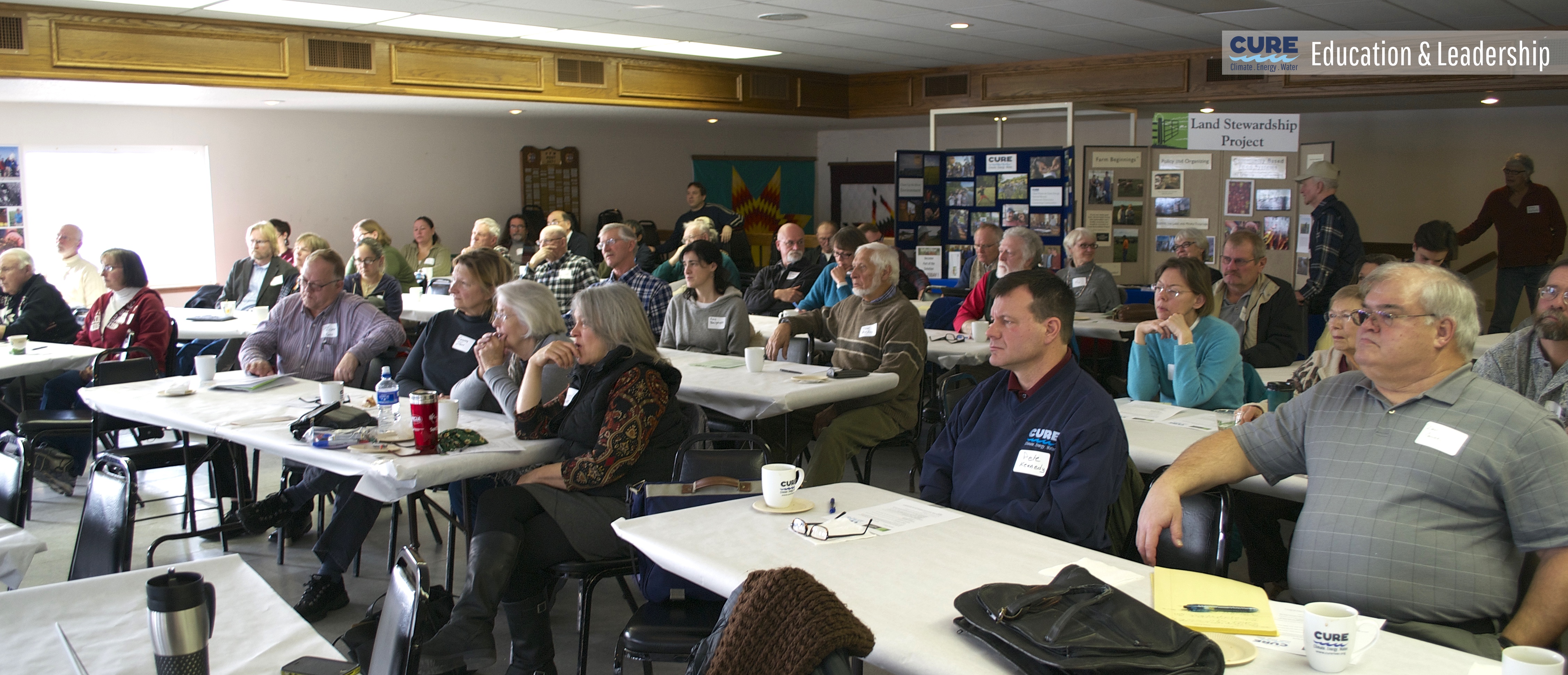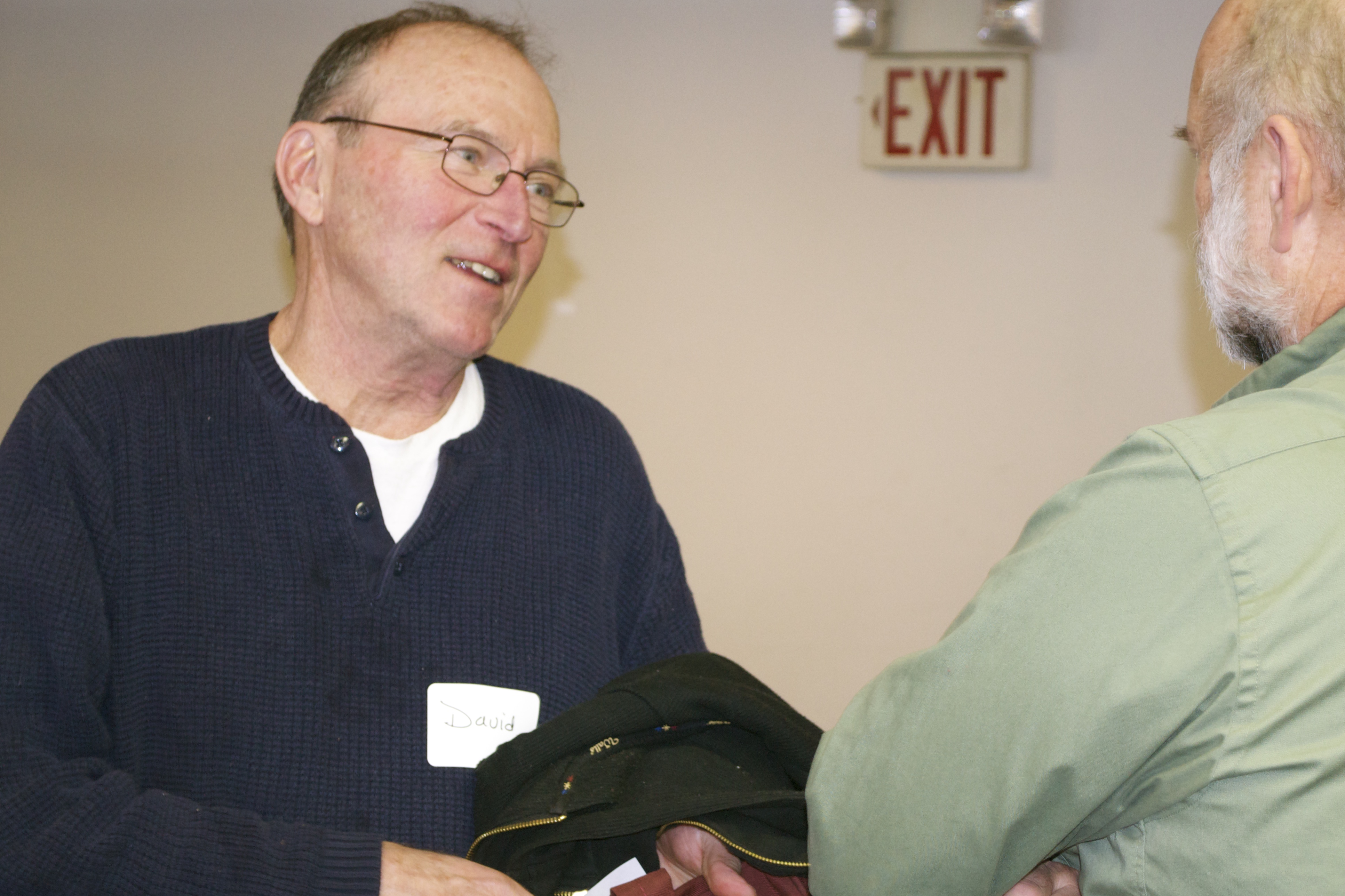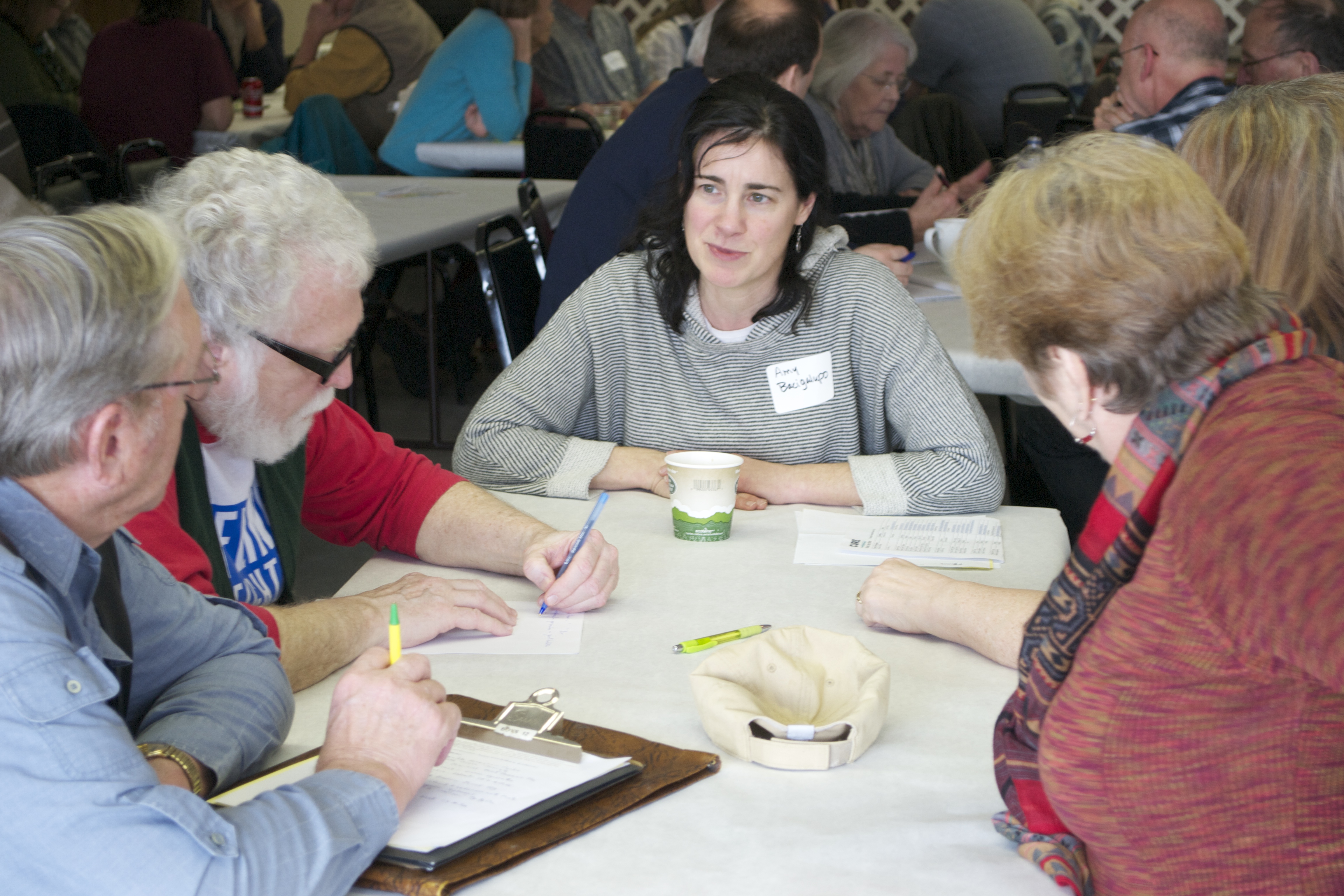Minnesota State Representative David Bly told CURE and Land Stewardship Project (LSP) members that this year’s legislative theme is “How do we take care of Greater Minnesota?” If some Minnesota legislators have their way, taking care of Greater Minnesota means the fast tracking of corporate mega projects at the exclusion of rural people from the decision making process when unwanted development comes to rural communities.
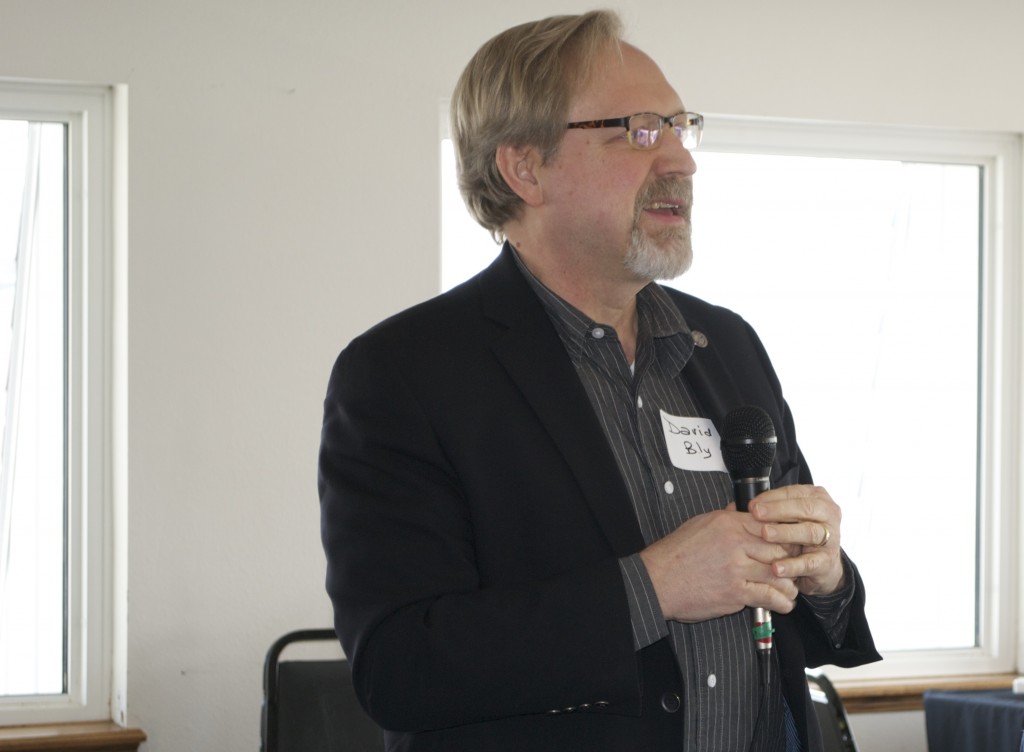
More than 70 CURE and LSP members joined forces on Saturday, February 7, for the first in a series of the Minnesota Rural Progressive Roundtable. Building Power for Renewing Rural Minnesota and Standing Up to Corporate Power was the theme that drew rural residents from across the region to Granite Falls. Protecting local control and citizen’s rights has long been a common cause for CURE and LSP members.
The issue most discussed at the Roundtable was a decision by the Citizens Board of the Minnesota Pollution Control Agency (MPCA) to require a full Environmental Impact Statement (EIS) on the controversial proposed Baker Dairy in Stevens County. Area residents had raised concerns about groundwater and other cumulative impacts from having multiple mega dairies operating in Stevens County and in response to these concerns, the MPCA Citizen’s Board voted to require a full EIS instead of the less comprehensive Environment Assessment Worksheet.
Read detail of the decision in a blog posted by LSP writer BrianDeVore.
On the other side of the controversy, advocates of industrial scale agricultural development have rallied to make sure local residents are kept at bay by proposing that the MPCA Citizens Board not only be excluded from the review process, but be eliminated altogether. Rural Blogger, Sally Jo Sorensen, at Bluestem Prairie has covered the controversy from the beginning and posted this story, where both Kathy DeBuhr and James Kanne seen testifying in Bluestem’s story attended the Roundtable.
In the debate over the future of agricultural development in rural Minnesota, State Senator Julie Rosen stated that a 320-acre farm in Big Stone County was “not real ag”. This raised the hackles of many in the CURE /LSP community. “We’ve contended for a long time that the vocational title of “farmer” should not be owned solely by the biggest and most powerful in that sector. CURE has always had farmers in its ranks and all of them wear that hat in whatever way it feels most comfortable,” stated CURE’s Executive Director, Duane Ninneman.
The real issue is that mega scale industrial Ag development, resource extraction projects, and other community intrusions are popping up all across rural Minnesota. In most cases, a single corporate interest applies for a permit to develop new industrial projects and often, our own local governments assist the corporate applicants in fast tracking the permit. The process is weighted heavy in favor of corporate applicants who bring with them extensive legal representation, limitless financial resources, and long established political connections. And as a result, rural people are increasingly excluded from the review and permitting process and corporate applicants find the path to corporate industrial development virtually unobstructed.
“We are concerned about where agriculture development is headed and about other large projects that will forever change the rural landscape. The issue at hand is how to insure that the decisions made for rural people will protect and benefit rural communities for the long run while keeping our air and water clean, our soil healthy, and our people included in the decision making process?” Ninneman stated.
Concern over these and other issues affecting rural residents led CURE to the conclusion that we should engage our members and the larger community in addressing these questions head on as part of a grassroots community forum. The Minnesota Rural Progressive Roundtable was created to facilitate that discussion.
The next Minnesota Rural Progressive Roundtable is scheduled for Saturday, April 18 in Maynard MN to discuss the future of agriculture and soil health.


